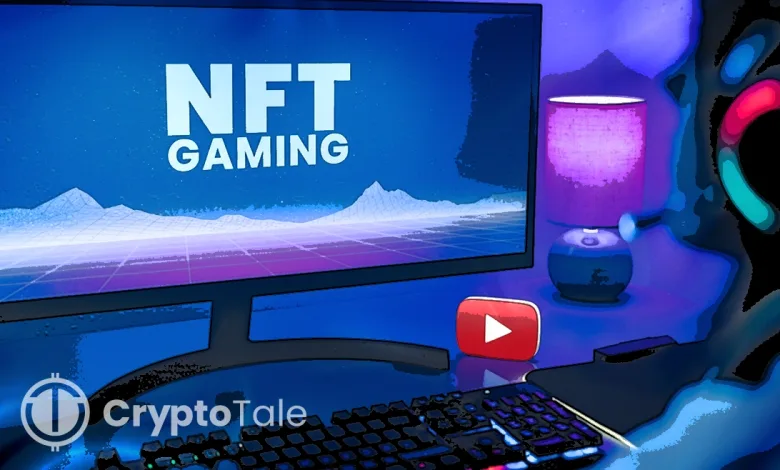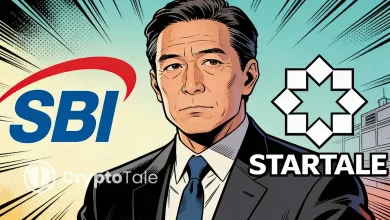YouTube Clarifies Crypto and NFT Content Still Allowed

- YouTube’s policy targets gambling using digital items, enforcement starting November 17.
- YouTube says gameplay, education, and reviews of crypto games and NFTs remain permitted.
- Creators must avoid gambling promos and “guaranteed returns” claims to stay compliant.
YouTube has tightened its gambling policies, extending them to include digital items like video game skins, cosmetics, and NFTs. The move raised concerns among Crypto and Web3 gaming creators who were worried about a widespread ban on blockchain gaming and NFT videos. But the platform has now made it clear that it’s not banning general crypto or gaming content that doesn’t promote gambling.
YouTube Expands Gambling Policy to NFTs, Skins, and Digital Items
YouTube revised its Community Guidelines in late October of 2025, banning content that links to online gambling services that are not certified by Google. The rules now apply to gambling that involves digital goods with monetary value, such as video game skins, cosmetic items, NFTs, and other tradable assets.
Under the revised gambling policy, creators may not link to or promote third-party casinos or “skin gambling” sites that let users wager digital items such as Counter-Strike 2 skins or NFT collectibles. YouTube will allow links only to Google-certified operators that meet local legal and advertising standards. The platform says it wants its rules to track how gambling increasingly uses digital items and to align with industry expectations on consumer and youth protection.
The update sits alongside broader moderation changes. YouTube plans to age-restrict more “social casino” content, even when no real money changes hands, and apply stricter review to gaming videos that show realistic human violence or scenes that focus on torture or mass attacks on non-combatants. Videos uploaded before 17 November that break the new rules may be removed or subject to age restrictions, though YouTube has indicated that these legacy cases will not trigger channel strikes.
Crypto Gaming and NFT Creators Voice Concern Over YouTube Rules
The announcement caused backlash in the crypto, NFT, and Web3 gaming communities. Most developers feared YouTube would categorize blockchain games, NFT trading, or even token price coverage as gambling content since on-chain assets can have a speculative value and can be traded in open markets. Other Web3 creators stated that the policy could discourage new users from discovering NFTs and gaming tokens via YouTube, which is a key channel of discovery.
Specific anxiety centered on content that resembles casino mechanics, such as case openings in Counter-Strike 2 or loot box-style NFT drops. Critics warned that reviewers or automated systems might misinterpret these mechanics as gambling, even when creators focused on gameplay or collection rather than betting.
Some gaming and crypto commentators linked the update to pressure from large advertisers who do not want their campaigns to appear next to gambling-related videos. They suggested that stricter limits on sponsorships could push Web3 creators to reconsider YouTube monetization or diversify onto platforms such as TikTok. At the same time, others accepted that clearer guidelines around gambling with NFTs and skins may reduce misleading “get rich quick” promotions that have harmed viewers in the past.
Related: YouTube Star MrBeast Plans Financial and Crypto Venture
YouTube Clarifies Crypto and Web3 Content Can Remain Under Clear Rules
After the initial uproar, YouTube moved to clarify the scope of the changes. A company spokesperson told media outlets that the new policy targets casinos and gambling sites, including those that pay out in crypto tokens or NFTs, rather than general crypto or Web3 gaming coverage. YouTube stated that creators can still show video game skins, cosmetics, or NFTs earned in-game and can discuss digital items with real-world value without violating the update.
According to these clarifications, educational videos, gameplay showcases, and technical explainers about blockchain, NFTs, or Web3 games remain allowed so long as they do not direct viewers to unlicensed gambling platforms or encourage wagering with digital assets. Content that promises “guaranteed returns” or presents investment outcomes as certain may still face removal or age restrictions, even when it promotes certified operators. YouTube maintains that such promises fall outside its standards on responsible financial and gambling-related messaging.




